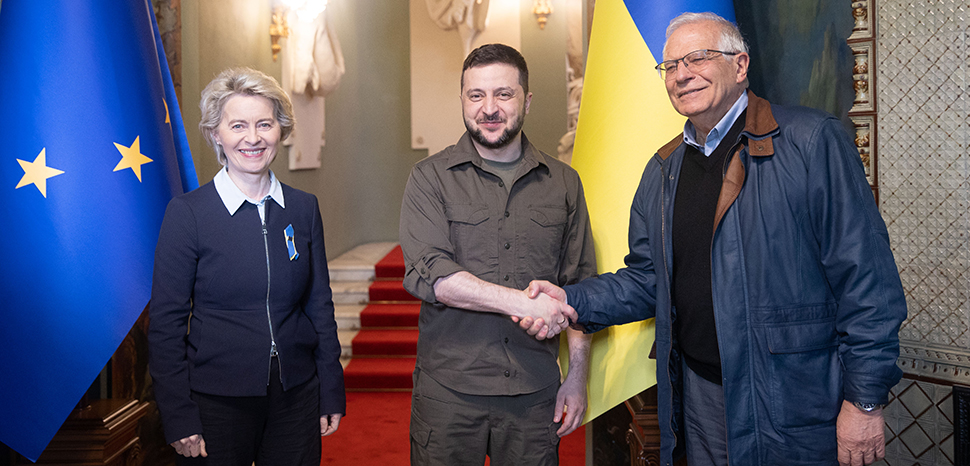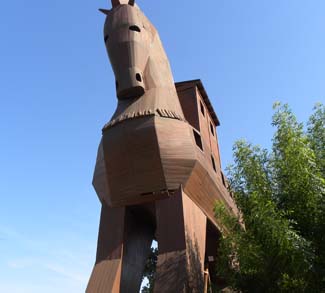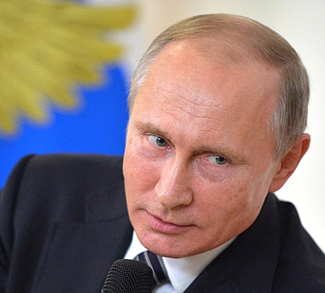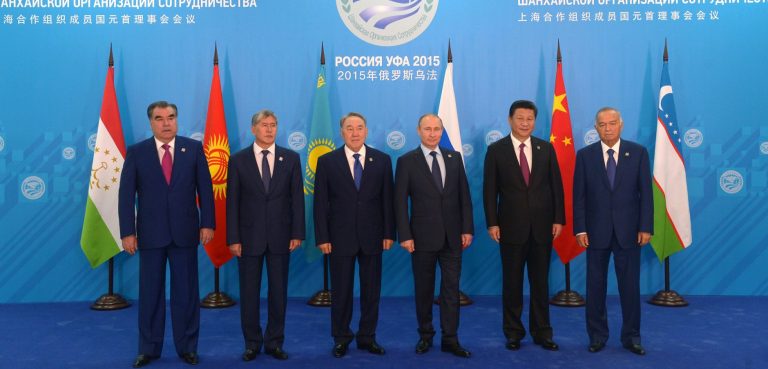As most of the world has stood with Ukraine in its valiant fight against Russian aggression since 24 February, one of the main outcomes thus far is that Ukraine’s formal status as a candidate for EU membership is set to be granted in Brussels later this month. After visits to Kyiv from multiple EU leaders, most notably European Commission President Ursula von der Leyen, the mechanisms are in place for Ukraine to formally begin its long march to Europe. This is the culmination of a protracted struggle forged in the early years of Ukraine’s independence from the Soviet Union in 1991, defiantly witnessed in the 2004 Orange Revolution, and accelerated after the Maidan Uprising of 2014. Now, Russia’s most recent invasion of Ukraine has sparked an anti-Russian and pro-European fervour that seems unstoppable, with 91% of Ukrainians expressing support for joining the EU in a poll conducted at the end of March.
In order to join the EU, Ukraine must fulfil the conditions of the Copenhagen Criteria, which demands stable, democratic institutions, the rule of law, and a ‘functioning market economy.’ Several current EU member states, including Poland, Hungary, Romania, and Bulgaria, met these criteria upon acceding to the bloc, but have subsequently suffered from democratic backsliding, corruption, and serious rule of law debates with Brussels. This is a current weakness within the EU that in the case of Hungary has resulted in a flawed democracy bordering on a hybrid regime in the heart of Europe.
For Ukraine to be in as strong a position as possible upon its accession, it must meet or even exceed all these criteria under a degree of scrutiny that has perhaps evaded Brussels in previous rounds of enlargement. As recent history has shown, EU membership does not guarantee that democracy prevails or even flourishes in national capitals. In order to safeguard Kyiv’s further democratic development and integration with Europe, the path to membership must not be unnecessarily hasty but verifiably rigorous in a way that strengthens not just Ukraine but the bloc as a whole.
Unlike the 2004 and 2007 enlargement rounds which included former Warsaw Pact states, the former Soviet republics of the Baltic nations, as well as Malta, and Cyprus, Ukraine has more than just post-Soviet economic and political reforms to address. In addition to fulfilling the necessary rule of law and corruption criteria, reconstruction and reidentification with the Ukrainian state after the traumas of a brutal war of aggression perpetrated by Russia will have to be tackled. This will require massive amounts of investment from the West as well as transparent procurement processes and legal mechanisms aligned to EU standards. While there is the potential for more corruption and backsliding in the process of Ukraine regaining its economic footing, the government is in a much stronger position to tackle these challenges than it was prior to 2014.
Ukraine has made great strides since 2014, which in the words of former Finance Minister Natalie Jaresko, marked a ‘turning point’ in Ukraine’s political and economic development. In the period from Ukraine’s independence in 1991 to before the Revolution of Dignity in 2014, ‘vested interests’ led to meaningful economic reforms not being realized, and oligarchic control over the economy remained a chronic issue. Fiscal restraint, decentralisation, and critical banking reforms have led to an increased level of economic resilience, that according to Jaresko, should help Ukraine as it is projected to suffer a 35-50% drop in GDP as a result of Russia’s invasion. Likewise, the decision made in 2014 to spend 5% of Ukraine’s GDP on national security and defence is one of the principal reasons Kyiv’s fighting force has been so remarkable in the face of the much larger Russian military.
As the war of attrition in the Donbas drags on, the conflict in Ukraine is already starting to occupy a lower place in the headlines. Ukraine may exist for some time in a state of geopolitical limbo with frozen conflicts and disputed territories, including Ukrainian citizens with Russian passports who have been promised the full protection of Moscow despite that protection not having any basis in international law. Russia will seek to protect Ukraine through the brutal means of occupation and dismemberment, hoping that time and disillusionment warp the Ukrainian people’s rightful sense of their place in Europe and their capacity to shape their own destiny. As is the case with all of Russia’s hybrid warfare and disinformation campaigns, Moscow doesn’t have to offer a valid alternative to the EU, it just has to show that the EU is too cumbersome and unruly to be worth the effort.
As Ukraine’s lengthy EU accession period commences, it is important that Kyiv has agency, legitimacy, and full ownership of its future trajectory. However, the EU also has a serious role to play in ensuring that its enlargement leads to a more cohesive and democratic union capable of meeting shared challenges rather than exacerbating pre-existing fissures. Ukraine’s position is unquestionably in Europe, and its people and leaders have shown a degree of Europeanness and a willingness to fight and die for Europe that at times has escaped those in the EU’s oldest member states. President Zelenskyy has brilliantly exposed the flaws and contradictions at the heart of Europe, and he is not afraid to admonish Germany and France if they are perceived to be dragging their feet or of acting overly cautious with respect to alienating Russia. In this sense, Zelenskyy is a true leader for Europe, narrowly focused on his country’s integration with the formal mechanisms and safeguards provided by its geographic home, while having no qualms about humiliating its much larger neighbour in the process.
While no institution, including the EU, can guarantee democracy, in the case of Ukraine it can guarantee that all possible conditions have been met for democracy’s most essential characteristics to flourish. For institutions are only as strong as the will of individual leaders and a nation’s citizens to maintain them. They can be enshrined in statutes and meet formal criteria, but they are ruled by fallible men and women who exist in the realm of politics, guided by the national interest but enmeshed in power that can all too often corrupt. What makes Ukraine unique is its organising principle and collective spirit of nationhood. The past few months have revealed a societal cohesion in Ukraine in the face of a savage assault that can at times feel alien to the dislocated and polarised communities that are so prominent across Europe and in the United States. This is Ukraine’s greatest gift to Europe from the start gate, and perhaps the most compelling case for EU enlargement in decades. An invitation to Ukraine is also an invitation for the EU to look inwards and re-establish its sense of purpose in a continent largely at peace yet unable to be untouched by the horrors of conflict that helped propel the creation of the EU in the first place. As such, the case for Ukraine’s entry into the EU is not just a moral or a strategic one but a hopeful one, capable of elevating all of Europe in the process.
The views expressed in this article belong to the authors alone and do not necessarily reflect those of Geopoliticalmonitor.com




